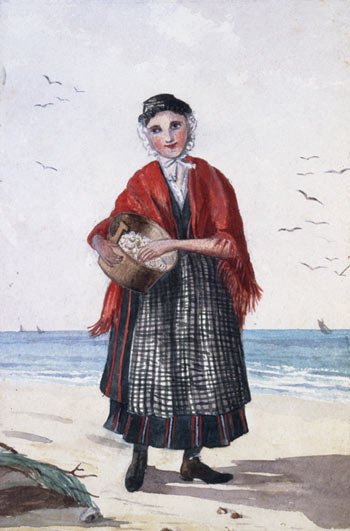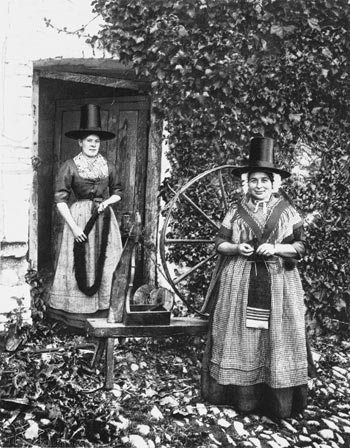Lady Llanover’s family were English yet she campaigned tirelessly to preserve, protect and promote the culture and traditions of Wales. Helen Morgan from Abergavenny Local History Society reports
 Lady Llanover, who lived 1802-1896, is probably best remembered for revitalising the Welsh national dress for women, fervently supporting the revival of the national eisteddfodau in the 1820s and campaigning for Welsh language education. She gave her staff Welsh titles and insisted that they wore Welsh dress.
Lady Llanover, who lived 1802-1896, is probably best remembered for revitalising the Welsh national dress for women, fervently supporting the revival of the national eisteddfodau in the 1820s and campaigning for Welsh language education. She gave her staff Welsh titles and insisted that they wore Welsh dress.
She also kept a flock of black sheep from whom, some say, originated the nursery rhyme “Baa Baa Black Sheep….three bags full”. Whatever the truth of that story, she appears to have been a force to be reckoned with, closing every pub on the estate including the Red Lion at Llanelen. Its reincarnation as Y Seren Gobaith (Star of Hope) temperance inn says it all. She and her husband, Benjamin Hall (of Big Ben fame) also fell out with the bishop who failed to share their views on the importance of church services being held in Welsh — the majority language in Monmouthshire before the tide of industrial immigration from England during the second half of the 19th century. When the bishop insisted on appointing an English speaking priest to the church at Abercarn, the Llanovers handed the living to the Welsh speaking non-conformists.
Yet the fundamental question is, why did the daughter of a wealthy Lincolnshire family become so strongly linked with all things Welsh? Her friend Lady Charlotte Guest shared her interest and and translated Welsh classics. But Mrs Augusta Hall, as she then was, went a whole step farther, adopted the bardic name Gwenynen Gwent (bee of Gwent) and contrived the “traditional” costume of red cloak, flannel petticoat and bedgown topped with tall black hat. Some say that she was helping the Welsh wool and flannel industry which was under threat from cotton imports. Others say that a national costume was a way for the Welsh to express their identity at a time when it was under threat.
Lady Llanover will be the subject of this month’s local history talk at the Borough Theatre when Dr Celyn Gurden-Williams will address the early years of Gwenynen Gwent’s involvement with Welsh cultural leaders and look at who and what influenced her — culminating in the Abergavenny Cymreigyddion Eisteddfod party at Llanover Hall in 1837 — the clearest marker that Gwenynen Gwent had arrived.
 Dr Celyn Gurden-Williams’ talk on March 15th starts at 7.30pm. Doors open at 7pm.
Dr Celyn Gurden-Williams’ talk on March 15th starts at 7.30pm. Doors open at 7pm.
Non-members may join on the night.

